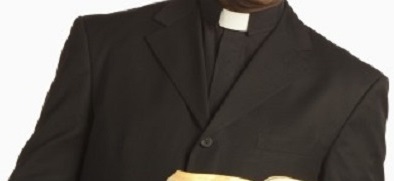
Should the clergy fear politics?
It matters to ask if the holy prophet Mohammed of Islam, the Buddha Shakuyamuni of Buddhism, the Messiah, Jesus Christ of Christendom, among others placed their reputations ahead of the welfare of the people they were raised to lead for the better; whether, the seeming disinterest of the ‘scribes’ of our time in issues of national interest tagged as “political” do any good to us.
Undoubtedly, the above religious icons were embodiments of discipline, selflessness and honesty who spoke the truth despite the threat it posed to them. They never looked on for the wrong and unjust to flourish in their sight. Their exemplary lifestyles, therefore, qualify as the appropriate litmus for checking the ‘true colour’ of those who have taken their robes to manifest the values they stood for.
It appears to me that a red line has been drawn between national issues that the clergy can comment on and those on which they dare not take a side. Wrapped with party colours and sometimes reduced to quibbles, such untouchable issues, believed to contain high political capital, are ironically made to look like a furnace that the clergy should fear to get near.
It is interesting to imagine how political elective office seekers and their cronies throng the churches and mosques for prayers and wise counsel during campaigns, but readily bin opinions from the same sacred mouths that pronounced fortunes on them few days after. Even fairly constructive criticisms face the fiercest knife on the altar of political convenience.
I was taken aback reading a piece on the Montie Three where a columnist, in the August 26, 2016 issue of the Daily Graphic sought to question the legitimacy of the clerics who commented on the issue. I wondered if members of the clergy were a different breed of persons or spirit beings that were immune to the potential crises that could arise from improper handling of such matters.
Unfortunately, most clerics in Ghana have bowed to this artificial creation that restrains them from holding to the divine virtue of calling a spade a spade. Issues of national concern have become somewhat unattractive to the attention of some members of the priestly fraternity who see such issues as ‘no-go’ areas for fear of being dented. To talk of availing themselves for elective office will be deemed ‘too far’ an adventure.
Who cleanses the filth?
But the question is, if politics, the mechanism of governance, is thought of as filthy by the “saints”, whose duty is it to cleanse it by unconditionally offering to rescue others in service to God? Years ago, Archbishop Benson Idahosa stood against a planned conference of world witches in Benin-City in Nigeria.
He publicly won the battle on a live television encounter with the chief convener of the conference. It was a legitimate meeting which government saw nothing wrong with. But the manifestation of the tribute, “If I be a man of God”, was at play as the occasion beckoned, and God did not fail to show up in Idahosa’s intercessory mission of saving Nigeria at the time. The clergy rose to save the situation.
To seek refuge under the tent of past instances where the clergy came under vituperation for commenting on national issues offer a rather personal motivation for apathy that defeats the liberation theology which Jesus Christ, for instance, reflected in the world.
Martin Luther King Jnr of blessed memory was a cleric who used his pulpit to whip up public conscience in the American society. He publicly deplored racial discrimination against the black race and marshalled support against all forms of injustice.
What is dirty about politics if those who engage in it are not dirty? Being attitudinally and behaviourally mannered will plant positive virtues in our political discourse and make society better. The clergy should not coil back from the core issues that affect the ordinary person by allowing defective politicking to succeed in feasting on national fortunes.
Culture of ‘prophetearing’
God still speaks to individuals in our generation. But that is not without space for charlatans to venture into such realm with questionable religious rhetoric that can tear us apart. The culture of prophesying on national elections is fast creeping into our body politic, which is not bad, except that God does not lie. There are concerns about the prophetic ministry becoming a safe haven for hearers of winners of elections who often put God in an uncharacteristic position of being inconsistent.
The worry is that most of these proclamations are not surgical in their manifestations, and yet condition the citizens’ mind towards a fixed outcome, and we must be careful.
The principle of inclusive governance does not discriminate against the opinions of the clergy in national affairs neither does God whose affairs the clergy conduct on earth, condone the wrong. Let those who believe in the teachings of liberation theology speak up with a clear conscience and find divine protection and favour that posterity will benefit from.
